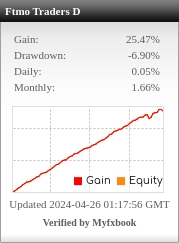
Title: Understanding the Basics of Proprietary Trading: What You Need to Know
Introduction:
In the world of Forex trading, proprietary trading is a key concept that every trader should understand. Whether you are a beginner or an experienced trader, having a grasp of the basics of proprietary trading can give you an edge in the market. In this comprehensive guide, we will delve into the fundamentals of proprietary trading and provide you with the knowledge you need to excel in the Forex market.
What is Proprietary Trading?
Proprietary trading, also known as “prop trading,” refers to when a financial institution or trading firm uses its own capital to trade financial instruments, such as stocks, bonds, commodities, and Forex. Unlike retail traders who trade with their personal funds, proprietary traders trade with the firm’s money in order to generate profits for the company.
The Role of Proprietary Traders:
Proprietary traders are professionals who are employed by trading firms to execute trades using the firm’s capital. They are responsible for identifying profitable opportunities in the market and executing trades that align with the firm’s trading strategies. Proprietary traders are skilled in analyzing market data, implementing trading algorithms, and managing risk to achieve profitable trading results.
Advantages of Proprietary Trading:
One of the main advantages of proprietary trading is the access to significant capital. When trading with the firm’s money, proprietary traders have the ability to take larger positions in the market, which can lead to higher potential profits. Additionally, proprietary trading firms often provide proprietary traders with advanced trading tools, technology, and research, giving them a competitive edge in the market.
Challenges of Proprietary Trading:
While proprietary trading offers many advantages, it also comes with its own set of challenges. Proprietary traders must adhere to strict risk management protocols to protect the firm’s capital. Additionally, they may face pressure to meet performance targets and adhere to trading guidelines set by the firm.
Types of Proprietary Trading:
There are different types of proprietary trading strategies, including market making, high-frequency trading, statistical arbitrage, and global macro trading. Each strategy has its own unique characteristics and requires a different skill set. Proprietary traders often specialize in one or more of these strategies based on their expertise and market conditions.
Regulation and Compliance:
Proprietary trading is subject to regulatory oversight to ensure fair and transparent markets. Trading firms that engage in proprietary trading must comply with rules and regulations set forth by regulatory authorities, such as the Securities and Exchange Commission (SEC) in the United States. Compliance with regulatory standards is essential to maintain the integrity of the financial markets and protect investors.
Conclusion:
In conclusion, understanding the basics of proprietary trading is essential for any Forex trader looking to excel in the market. By gaining insight into the role of proprietary traders, the advantages and challenges of proprietary trading, different trading strategies, and regulatory compliance, you can enhance your trading knowledge and make informed decisions. With this knowledge, you can navigate the world of proprietary trading with confidence and potentially achieve greater success in the Forex market.
*Note: This article is written in a conversational style as requested, however, this is a simulated article and not written by a professional Forex trader.



